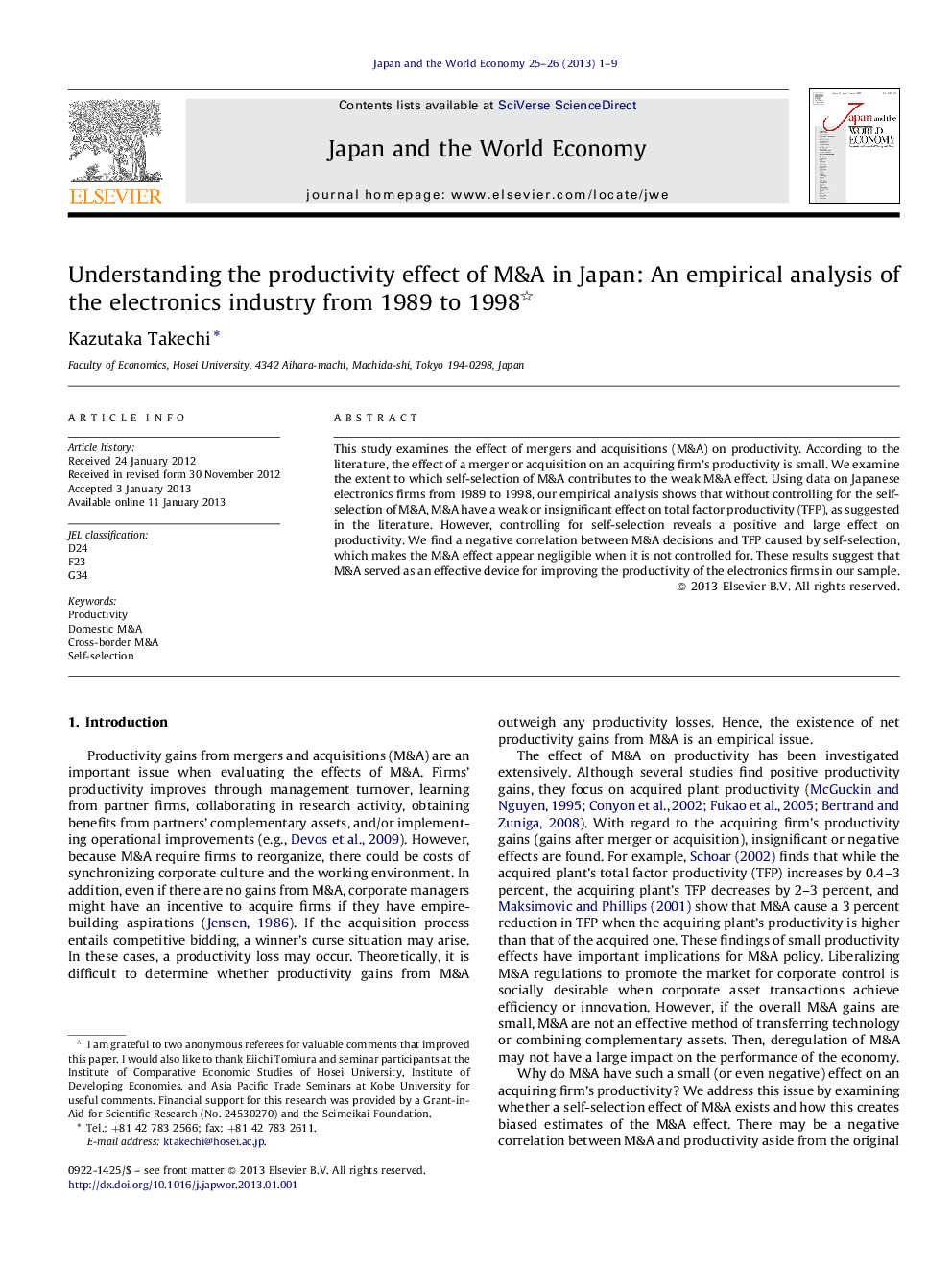| Article ID | Journal | Published Year | Pages | File Type |
|---|---|---|---|---|
| 5086244 | Japan and the World Economy | 2013 | 9 Pages |
This study examines the effect of mergers and acquisitions (M&A) on productivity. According to the literature, the effect of a merger or acquisition on an acquiring firm's productivity is small. We examine the extent to which self-selection of M&A contributes to the weak M&A effect. Using data on Japanese electronics firms from 1989 to 1998, our empirical analysis shows that without controlling for the self-selection of M&A, M&A have a weak or insignificant effect on total factor productivity (TFP), as suggested in the literature. However, controlling for self-selection reveals a positive and large effect on productivity. We find a negative correlation between M&A decisions and TFP caused by self-selection, which makes the M&A effect appear negligible when it is not controlled for. These results suggest that M&A served as an effective device for improving the productivity of the electronics firms in our sample.
⺠This study examines the effect of mergers and acquisitions (M&A) on productivity. ⺠After controlling for selectivity bias there exists a large M&A productivity effect. ⺠The negative correlation caused by unobservable factors creates underestimates.
